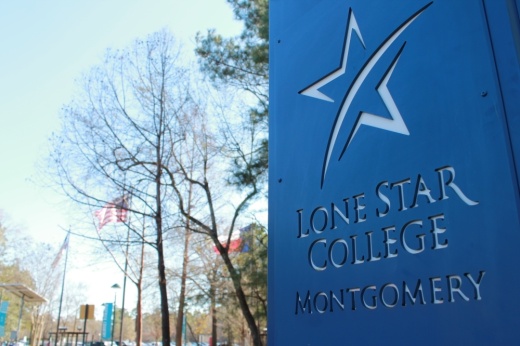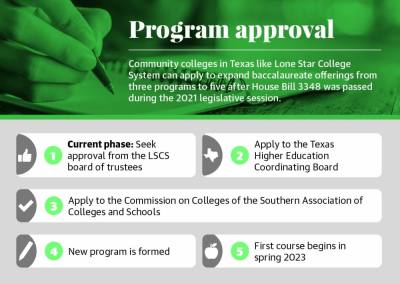The proposed program is possible because of House Bill 3348—passed during this year’s regular session of the Texas Legislature—which increases the total number of baccalaureate programs a community college can offer from three to five.
Valerie Jones, associate chancellor of academic affairs at LSCS, said the decision to add the emergency management degree program was based on the projected need for employees in the field for the next 10-20 years.
“We want to make sure that the programs for our students are aligned with future careers for them,” Jones said. “With this case ... we are in an area where emergency management spans into so many different areas, from flooding to hurricanes to fires and pandemics.”
LSCS currently offers three baccalaureate programs: Bachelor of Science in nursing; Bachelor of Applied Technology in cybersecurity; and Bachelor of Applied Science in energy, manufacturing and trades management.
Matthew Adelman, battalion chief of emergency preparedness for Montgomery County Emergency Services District No. 8, said the emergence of an emergency management career path is a recent development, and he anticipates the new program will be beneficial.
“[The career] is evolving,” Adelman said. “There is going to be more of a demand for it in both the private and public sectors.”
Adelman said one career option within the field for fire service is being a resource coordinator. During a time of disaster, he said the coordinator is in charge of working with county, state and federal agencies to get resources.
“We do the record keeping of that to make sure we have accounted for what resources we have expended and how long they have been there,” Adelman said. “We are accountable to whatever higher level of authority that resource came from.”
Palmer Buck, chief of The Woodlands Fire Department, said the Houston region has shown it is ripe for disasters over the past few years, and he believes the new program will be a good opportunity to train those already in the field.
“I think a lot of people that work in emergency management have had careers in the frontline emergency services, and this could be a second career for them,” Buck said. “I think it would be an advantage to [take the LSCS courses].”
Jones said LSCS is still in the proposal stage for the new baccalaureate program. Moving forward, LSCS will work to get approval from its board of trustees, then apply to the Texas Higher Education Coordinating Board before applying to the Commission on Colleges of the Southern Association of Colleges and Schools. Once all of the steps have been completed, Jones said the college is planning to launch the program in the spring semester of 2023.
“At each stage, we are demonstrating to our board of trustees, the state and our regional accreditors that we have thoroughly thought through this,” Jones said. “We are showing our graduates will have employment after this and our community has requested a need for this.”
Jones said the program is anticipated to operate in cohorts, beginning with a total of 30 students in the initial class before expanding up to 60 students in the following fall.
“What we experienced with our first bachelor’s program was a much higher demand than we expected,” Jones said. “We are prepared for the same type of opportunity.”
As of July, Jones said it was too early to say which campus will host the program.
Community colleges in Texas like Lone Star College System can apply to expand baccalaureate offerings from three programs to five after House Bill 3348 was passed during the 2021 legislative session.







